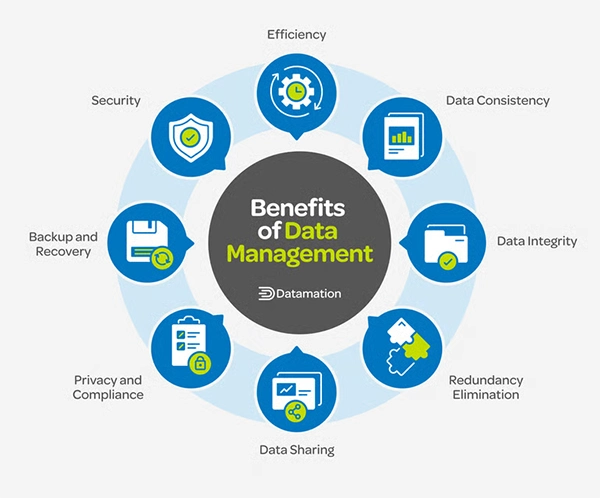In this digital world, companies have enough raw data. From customer interactions to online transactions, there is a sea of information. But having so much information does not directly lead to better growth and decisions. This is raw data, which is often messy and needs to be processed effectively to be used.
This is where professional data management services come in. These data management services help to deal with this chaotic data and manage it efficiently to transform raw data into actionable insights. Processing them efficiently is important to drive smarter decisions from it.
Ready to know its importance in increasing a business value? Continue reading this article to explore how professional data management services can help companies grow and increase their value.

Key Takeaways
- Raw data is the unprocessed foundational data and needs to be managed precisely.
- Integrating sources into a single environment for analysis can be used for better data management.
- Aligning with evolving technology requires infrastructure investment and specialized talent.
- To be competitive in the market, it is essential to automate tasks and grow with the help of data analysis.
Raw data is often messy. It comes from multiple sources, stored in different formats, and duplicated across silos. Enterprises that rely on spreadsheets or outdated systems for data storage face serious limitations:
These issues do more than waste resources. They actively harm decision-making, making it impossible for leaders to act with confidence.
Professional data management services address these challenges by introducing structure and automation into the way enterprises handle data. Core components typically include:
Together, these components transform data from a chaotic asset into a reliable foundation for strategy.
Interesting Fact
Studies have shown that poor data quality costs organizations a loss og $12.9 million every year due to inefficiency and missed business opportunities.
Proper management of data makes it possible to find out real business value. Reliable datasets support advanced analytics, predictive modeling, and machine learning. This leads to tangible outcomes such as:
Efficient data management services can help to process messy data into organized insights that can increase your business value.
Building a mature data management function internally is resource-intensive. It requires specialized talent, significant infrastructure investment, and continuous updates to stay aligned with evolving technologies and regulations. For many enterprises, working with external partners is the more practical choice.
Specialized providers bring:
These advantages allow enterprises to accelerate the adoption of robust data practices without years of trial and error.
In this competitive and continuously evolving world, it has become essential to take help from artificial intelligence to automate tasks and analyze data to make better future decisions. They can significantly increase your company’s value and equip your business to make better decisions. And this can be done effectively by data management services. They will act as a backbone of digital business, enabling enterprises to convert raw data into lasting value. By investing in structured, scalable solutions today, organizations position themselves for sustainable growth tomorrow.
To make better and precise decisions, dashboards need to be accurate.
Data management services can simply automate most of the tasks and create a structure to face challenges easily.
Raw data is the original and unprocessed data that is collected directly from the source and acts as foundational information.
Advanced tools can simply give you access to cutting-edge platforms for real-time analytics and cloud-based storage.
